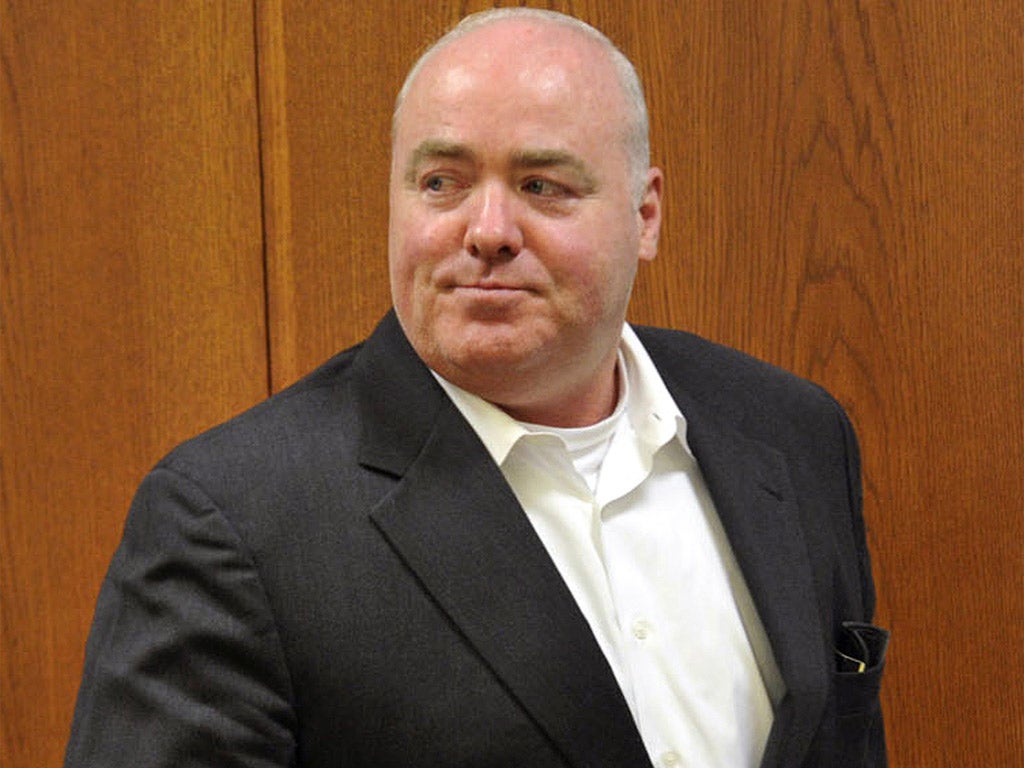Nephew of Kennedy clan who was jailed for 1975 murder of teenage girl is granted retrial
Judge criticises defence attorney in Michael Skakel’s 2002 trial for killing neighbour when he was 15 years old

More than a decade after he was convicted of murdering a neighbour when he and the victim were teenagers in a ritzy enclave of Greenwich, Connecticut, Michael Skakel, a nephew of the Kennedy clan, has been granted a fresh trial, a milestone in his long quest to have his sentence reduced or overturned.
In a toughly worded 135-page ruling, Judge Thomas Bishop, a state judge in Connecticut, ordered that Skakel, now 52, be tried again on the grounds that his defence the first time around was serially flawed. Skakel’s new lawyers were to ask that he be released on bail in the meantime.
Mr Skakel, nephew of Robert F. Kennedy’s widow Ethel Kennedy, has repeatedly attempted to assert his innocence.
He was convicted in 2002 of murdering Martha Moxley, whose body was found bludgeoned by a golf club under a tree in her family’s garden after she had attended a Halloween party at the Skakel home in 1975. She and Skakel were 15 at the time.
The trial of Skakel, which received intense media attention because of the Kennedy connection and the setting of the crime in one of America’s poshest postcodes, followed 25 years of the case being left cold by local police. He was represented by Michael Sherman, a trial lawyer who had built a public profile for himself, notably as a legal commentator on cable television.
Mr Sherman “was in a myriad of ways ineffective”, Judge Bishop wrote. “The defence of a serious felony prosecution requires attention to detail, an energetic investigation and a coherent plan of defence capably executed. Trial counsel’s failures in each of these areas of representation were significant and, ultimately, fatal to a constitutionally adequate defence.”
Judge Bishop noted that Mr Sherman had failed adequately to posit an alternative theory that Skakel’s brother Thomas, who was older by one year, might have been the murderer. The two boys were known to have vied for Ms Moxley’s affections. Nor, the judge wrote, did Mr Sherman call a witness who still today asserts that Michael was at a cousin’s home at the time of the murder.
“Sherman’s failure to point an accusatory finger at T. Skakel was and is inexplicable,” Judge Bishop wrote. “Given the evidence of T. Skakel’s culpability available to Attorney Sherman before trial, there was no reasonable basis for his failure to shine the light of culpability on T. Skakel.”
Before the Connecticut parole board one year ago, Skakel suggested his best chance of escaping prison would be to admit to the murder. “But 10-and-a-half years later, I can’t do that. It just isn’t me,” he told the panel, which denied his request.
At a hearing in April this year, Skakel’s new lawyers grilled Mr Sherman and accused him of using the original trial to bolster his celebrity standing.
This week, Mr Sherman welcomed the judge’s ruling. “I’ve never thought that Michael Skakel was guilty, and I’m happy he’s getting a new trial,” Mr Sherman said. “He deserves it; he deserves to be free.”
In a brief statement, the mother of the victim, Dorthy Moxley, 81, said she was did not believe Skakel would be exonerated in a new trial. “It just means we will win again,” she said. “I feel so confident that Michael Skakel is the guilty person. I don’t have any doubt about that.”
Join our commenting forum
Join thought-provoking conversations, follow other Independent readers and see their replies
Comments